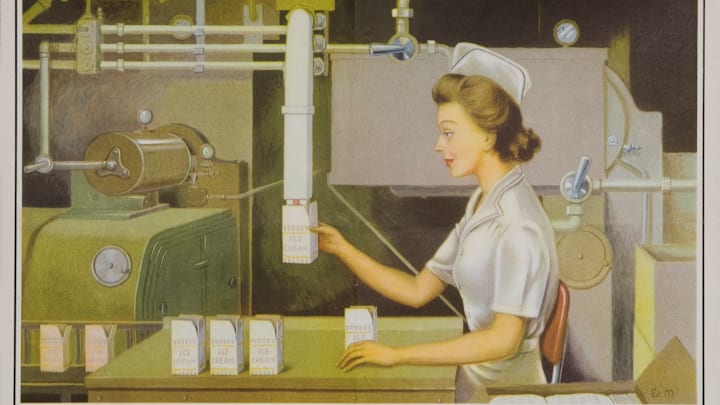People's habit of using plastic ushers the planet into its slow demise. It chokes and poisons animals, degrades the land and pollutes the waterways. A collective transition to reusable bags, recyclable glass and compostable paper wraps can help mitigate the looming effects of climate change. Here are the seven benefits of green packaging in your food.
1. Reduces Exposure To Harmful Chemicals
Plastic bottles have bisphenol A, phthalates and several components researchers have found to cause cancer. Unlike paper, which completely disappears from the planet after its shelf life, rotten plastics leave traces of micro and nanoparticles you can accidentally eat, inhale or absorb by the skin.
Based on studies, up to 33% of household dust fallout contains polypropylene — a type of microplastics. Dangerous amounts inside the body can contribute to various health conditions, including damage to the DNA that can prompt cancer. The switch to eco-friendly containers can minimize the hazards to people's health.
2. Preserves Food Quality
Exposure to high temperatures can cause plastic to break down into microscopic pieces that can migrate into your food. Studies have found three ways plastic leaches toxins on your meals — heating, vigorous washing and using a dishwasher. Feeding bottles with warm milk can put babies at a higher risk of food poisoning. Containers labeled as microwave-safe may also leak toxins when heated multiple times.
Glass containers are excellent examples of non-toxic green packaging. They remain stable under high microwave heat and don’t leach chemicals. They’re a better alternative for storing foods. Plus, they preserve the quality of your leftovers for a period.
3. Increases Consumer Awareness
The switch to eco-friendly packaging makes more people aware of climate change and the damaging impact of plastic on all life forms. A recent survey shows 68% are more than willing to pay for products that support the environment despite inflation and other economic challenges. This data shows the massive demand for ecological packaging and other sustainable approaches. Past initiatives have made considerable strides in changing consumer behaviors and mindsets to go green.
4. Encourages Innovation and Creativity
Consumers' attention and pockets are drawn to brands with high eco-friendliness scores through green packaging and organic formulas. Sustainability has set off a healthy competition among businesses, inspiring leaders for fast innovation to stay relevant on their target audience's radar.
One company has successfully converted its plastic packaging to 90% renewable by replacing polystyrene with liners created out of cornstarch and paper. It aims to completely eliminate this material from its products by 2025, which will remove 60,000 polystyrene boxes from the environment every year.
Thanks to the elevated consumer demands for sustainable goods, developments in biodegradable materials like polylactic acid and cellulose and the integration of technology for smart packaging have advanced considerably.
5. Reduces Carbon Footprint and Emissions
The packaging industry consumes the highest volumes of plastics worldwide, filling landfills with various toxins. More than two-thirds of these products are used in the food sector.
The soaring demand for eco-friendly packaging can decrease the pollution associated with manufacturing plastic containers. Research shows as many as 33% of consumers want to eat more sustainably. Food companies meet this demand by opting for sustainable packaging and ingredients. Nowadays, people are inclined to patronize brands that put more emphasis on environmental safety over revenue.
6. Decreases Use of Fossil Fuels for Energy
One ripple benefit of green packaging is the reduced dependency on non-renewable energy sources, another win for the environment. Burning fossil fuels is the prime source of climate change. It releases an array of air pollutants, increases precipitation's acidity and depletes freshwater resources. Today, companies combust over 4,000 times the amount of fossil fuels burnt during 1776. Relying less on them can help mitigate climate change.
Choosing green food packaging can slowly diminish the demand for coal and natural gas until renewable sources like solar become the standard. Fortunately, the world is heading in the right direction, with various industries choosing sustainable means.
7. Supports Food Security
Fruits and vegetables begin losing nutrients three days after they're harvested. Shipping them to far-flung areas can further degrade their quality, which contributes to tons of food waste that exhausts various resources and leads to scarcity. Food producers, farmers and agriculture professionals play a role in ensuring everyone has access to nutritious edibles. One of their current challenges is soil toxicity.
Plastic use exacerbates food insecurity. Microplastics in soil can decrease fruit yield and nutritional values. Polyethylene terephthalate (PET) and polyvinyl chloride (PVC) are two common types that poison the land.
In one study, PET- and PVC-treated soil decreased tomato harvest by 20% and 38%, respectively. Fewer yields mean food shortages. In addition, nutrients like lycopene and phenols were lower in PVC-treated plants. Ditching plastic containers for eco-friendly bags can help maintain soil health for a decent harvest.
Consider the Benefits of Green Packaging in Your Foods
You can help champion environmental awareness by choosing sustainable packaging for your household items. Say no to plastic wraps when shopping for groceries. Instead, bring your own reusable bag. Avoid buying beverages in plastic bottles. Bring containers for leftovers when you dine out. Minor changes like these can inspire others to do their part in protecting the planet.
